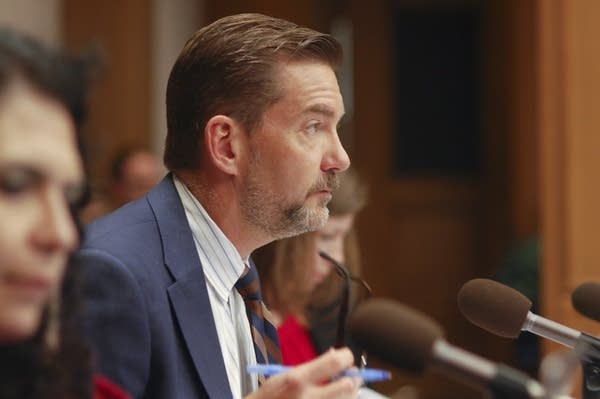Dayton, Republican leaders say Southwest light rail not a priority

Go Deeper.
Create an account or log in to save stories.
Like this?
Thanks for liking this story! We have added it to a list of your favorite stories.
The planned Southwest light rail line from downtown Minneapolis to Eden Prairie has run into a major hurdles at the state Capitol, with Gov. Mark Dayton and Republican legislators backing away from the project.
Dayton said Tuesday that he is not willing to back the state share of the $1.6 billion project until a lawsuit over its route and a move by the Minneapolis Park Board to consider digging a deeper tunnel for the train are settled.
Citing ongoing disagreements over running the line through Minneapolis's upscale Kenwood neighborhood, Dayton said he's also not going to ask the federal government for funding for the project this year or next year.
"I would say that unless the people who want better public transit get behind this project and really insist that the process be speeded up and carried out, we'll go back to what we have now and add bus lanes and whatever else," the governor said. "Some people think that's a better approach anyway, so we may by default into that anyway."
Turn Up Your Support
MPR News helps you turn down the noise and build shared understanding. Turn up your support for this public resource and keep trusted journalism accessible to all.
But the biggest obstacle to the light rail line may be the shift of power in the Legislature. Republicans who now control the Minnesota House campaigned on spending more money on roads and bridges and less on trains.

State Rep. Tim Kelly, who chairs the House Transportation Committee, did not rule out funding for the light rail line, but agreed with Dayton that it won't be a priority.
"It's really difficult to get behind a project where you don't feel it's even ready and agreed upon between the parties that want the project," said Kelly, R-Red Wing.
The comments by Dayton and Kelly could further delay a project that has seen plenty of hiccups. The city of Minneapolis gave consent to the line in August but only after rejecting it a year earlier. The city and Metropolitan Council hired a mediator to resolve their differences over the project's design.
Meanwhile, the Minneapolis Park Board is scheduled to vote tonight on whether to hire a consultant to determine whether the train should run in a deeper tunnel rather than rely on a shallow tunnel and a bridge in an area known as the Kenilworth corridor, a narrow strip of land between Cedar Lake and Lake of the Isles.
Park Board Chair Liz Wielinski said the board does not intend to delay the line or increase its price tag. She said its role is to protect the city's park land.
"As far as I know, what we are doing and what is going on with Southwest Light Rail is no different than what is going on with the Green Line or Hiawatha," she said. "There are always hurdles. There are always delays. This is how these giant, transportation projects work."
Others welcome Dayton's stance. A group called the Lakes and Parks Alliance filed a federal lawsuit to stop the project, contending that the full environmental impact of the 16-mile line has not been studied. The group's spokeswoman, Mary Pattock, said the project needs to be slowed down until a more thorough environmental review is completed.
"We're glad that the governor is unwilling to support a project that has turned out to be such a mess," Pattock said. "It's one big pot of problems."

The Met Council has already done an environmental review and another one is expected to address recent changes to the project. State Sen. Scott Dibble, who chairs the Senate Transportation Committee, said Senate Democrats support the plan. The project will face "tougher sledding" this year because House Republicans are less likely to fund it, said Dibble, DFL-Minneapolis.
If the plan is approved and funded, it would be the most expensive transportation project in the state's history, with Minnesota taxpayers funding at least half of the total cost.
"It's a big investment," Dibble said. "I think it returns way more than a billion dollars to our overall economy and prosperity, but folks really have to step up and create a political climate in which an investment like this can be successful and move forward."


